Solving the Educator Shortage
Expanding and Diversifying the Profession

he most vexing problem facing nearly every community across the nation is the dwindling educator pipeline. Whether a community is experiencing this shortage now or bracing for it in the near future, it’s a crisis that must be addressed through an equitable and just public school model that funds the cost of more highly qualified and diverse educators.
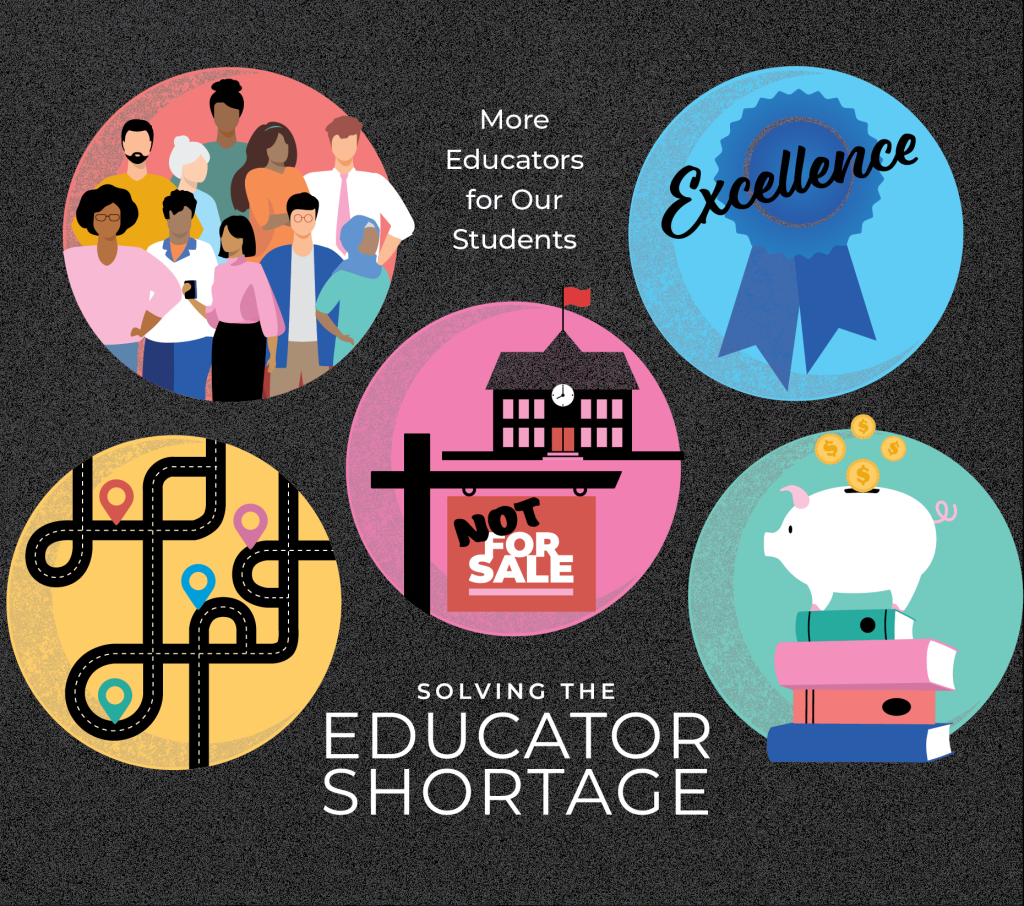
With professional pay lagging, overwhelming workloads in all areas, inescapable student traumas causing stress and challenges at home and in our schools, and the increasing politicization of public education, record-setting teacher turnover has met with a declining pipeline to create the crisis we’re in. At the same time, the diversity of our teaching workforce doesn’t match the makeup of our students; while Maryland’s preK-12 public school student population is more than one-third Black and 20% Hispanic, the teacher population is nearly 80% white. The aggressive efforts by Moms for Liberty and other extremist groups to ban books and rewrite curricula to satisfy their political agendas further compounds the challenges some students face of seeing themselves represented in their school library and curriculum.
Read how different counties are addressing the shortage here.
Expanding and diversifying the teaching profession is why MSEA is spearheading legislation in this year’s General Assembly that expands the pathways to teacher certification by creating more pathways for aspiring educators, conditionally certified educators, and career-changers.
“We’re fighting for legislation we believe is necessary to increase the numbers of educators across the state by making the pathway to educator certification more accessible to all education students, including those previously shut out by the bias and systemic racism of inflexible and outdated policies,” said MSEA President Cheryl Bost. “Our state constitution guarantees a fair and equitable public school education for every student. That means adequate staffing levels and access and representation so that learning becomes relevant and achievable for all students.”
Get up-to-date news on MSEA’s advocacy to expand and diversify the teaching profession legislation and more! Read Up the Street here every Friday!

Last year, MSEA’s years-long efforts to build a larger and more diverse educator workforce resulted in the Maryland Educator Shortage Reduction Act, which includes updating the Teaching Fellows for Maryland scholarship program and the Teacher Development and Retention Program, a six-year pilot program to help recruit and support educators with a $20,000 stipend for their 10-month teaching internship. It may be progress, but there’s much more to do. In this 2024 General Assembly session, MSEA is aggressively pursuing even more pathways to address the educator shortage and create a modern educator workforce—pathways that reduce biased standardized tests and that better serve and reflect our communities.
“Expanding and diversifying the educator pipeline through a smart and streamlined approach to educator certification is the right next step for Maryland to take to address the educator shortage,” said bill sponsor and former educator Del. Eric Ebersole (Dist. 44A). “Research shows that learning improves when we have more educators in our classrooms who share backgrounds with our students, and that students benefit from having educators who look like them. We also know that standardized certification tests present a bias that prevents too many of these aspiring educators from entering the profession. This bill can make important improvements to reducing our teacher shortages and simultaneously diversifying the teacher workforce.”
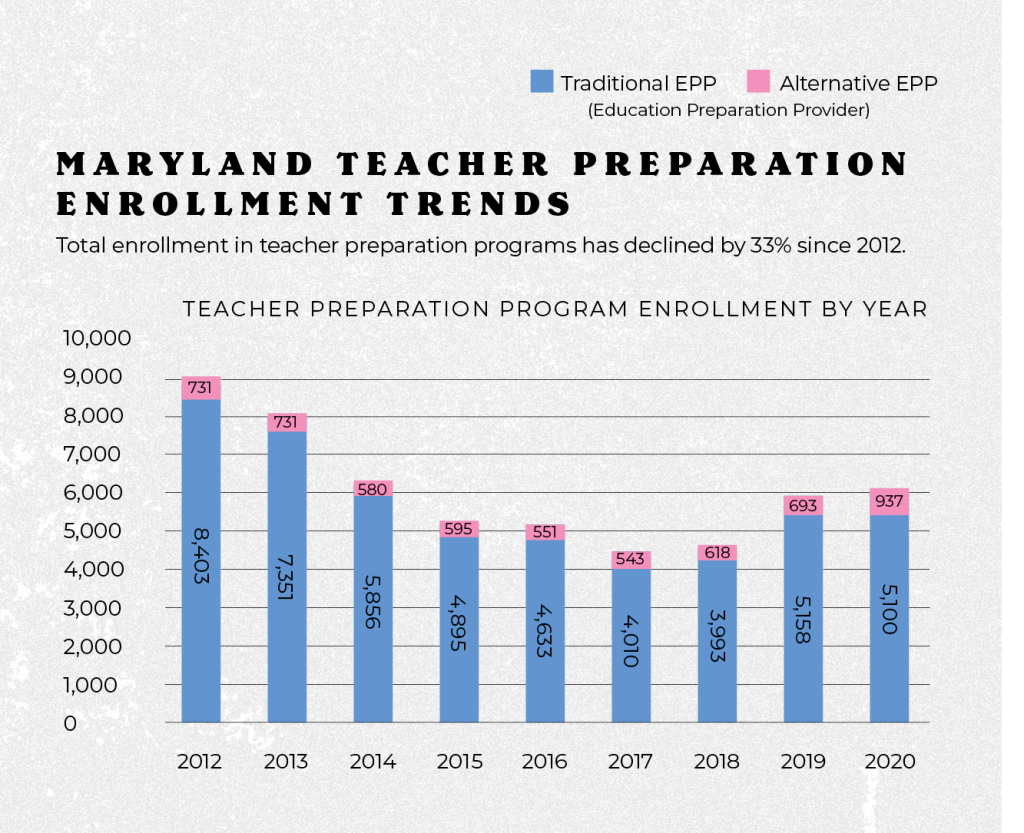
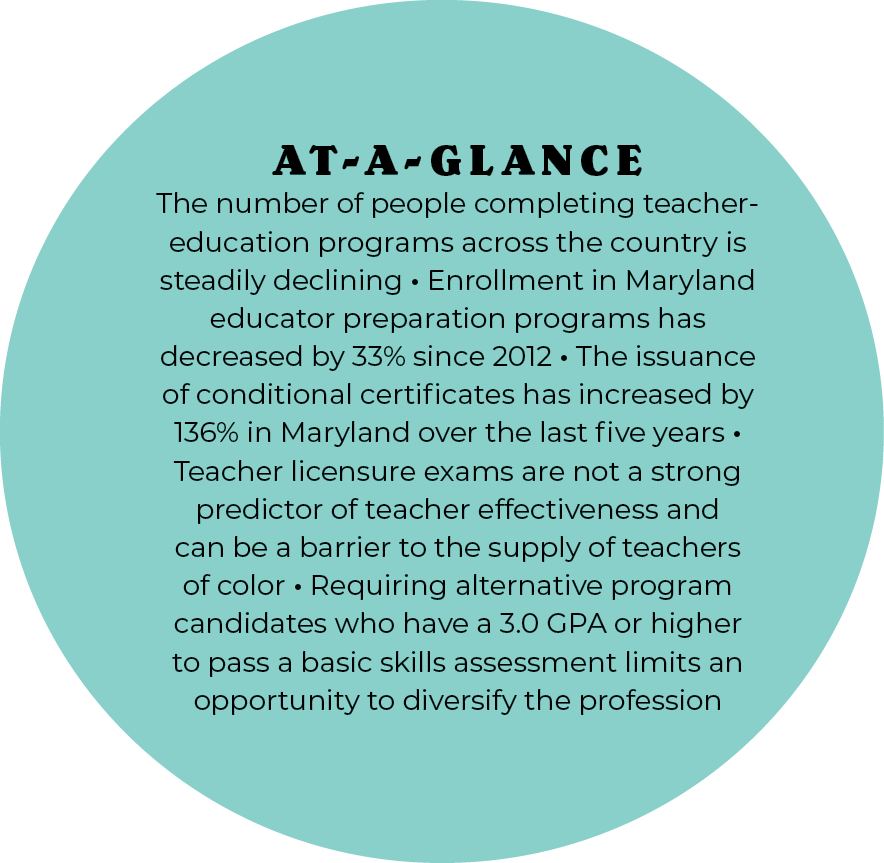
Research suggests that despite their widespread use, teacher certification exams do not predict teacher effectiveness, and racial disparities in certification exam pass rates also suggest there is bias in the tests themselves, just as we know standardized preK–12 exams are biased and not a reliable indicator of a child’s academic promise. For too long, we have been aware that sacred cow standardized tests in education are evidence of a racist and antiquated system that not only doesn’t open, but actively closes, the door on too many Black and Brown students. For prospective educators, these tests include the widely used Praxis Core, SAT, ACT, and GREs.
“It’s the test itself that creates issues. Instead of Praxis exams we should be certified with a high GPA, the passing of all of our internship hours, and passing edTPA,” said Ciera Davisson, a senior at Frostburg State University. “I would prefer to complete my internships through my university and complete edTPA senior year. I could understand taking the content Praxis exams for middle and high school teachers but other than that, there is no reason for testing general content. We take our general education courses and then take them again in our major requirements to learn how to teach the content. Testing us on the same material on numerous occasions wastes everybody’s time.”
MSEA’s proposed legislation would reduce testing roadblocks and create new pathways to expand and diversify the profession. Use the chart below to compare current MSDE requirements, 2025 Blueprint requirements, and the proposed changes MSEA is fighting for in the 2024 General Assembly.
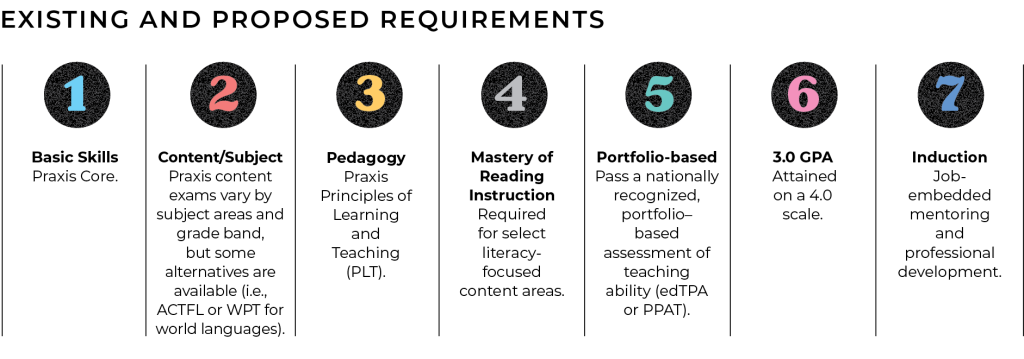
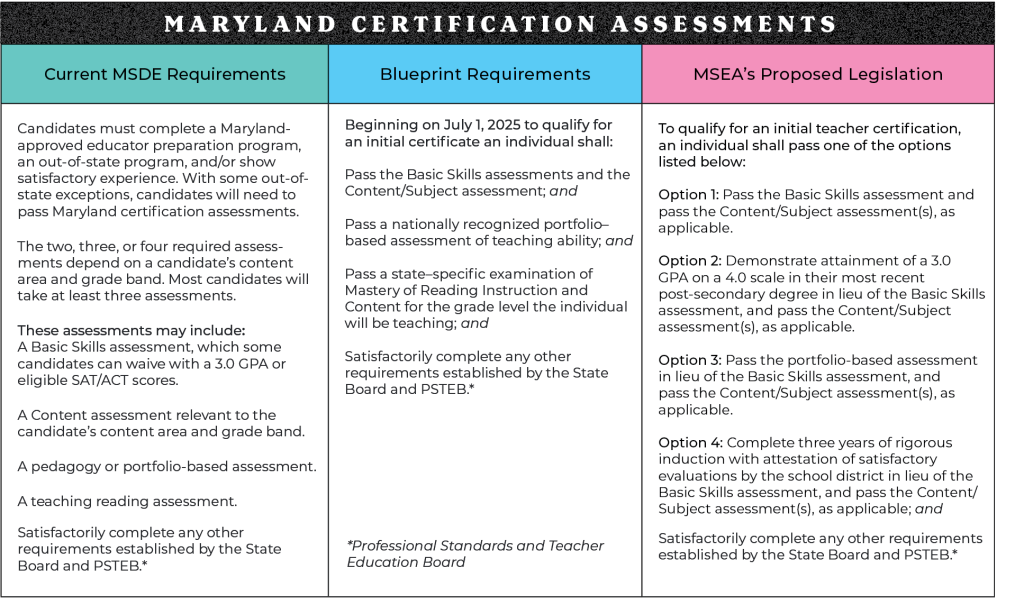
While the Blueprint for Maryland’s Future takes steps to increase staffing levels and improve diversity in the educator workforce, it also narrows the certification pathways for educators. Starting in 2025, the Blueprint’s pathway requires portfolio-based and skills assessments, but it’s a one-size-fits-all solution and we know as educators that this approach is not equitable. See chart to compare current MSDE requirements, 2025 Blueprint requirements, and MSEA’s proposals to the 2024 General Assembly.
“We want to be sure every student has fair access to all the opportunities our public schools can provide. That means well-prepared and diverse educators who understand and support them in their individual interests and unique promise,” added Del. Ebersole. “When students have highly qualified educators they can relate to and trust, they build confidence in their ability to succeed in school. And when our students thrive, our communities thrive with them through a well-educated and prepared workforce.”

